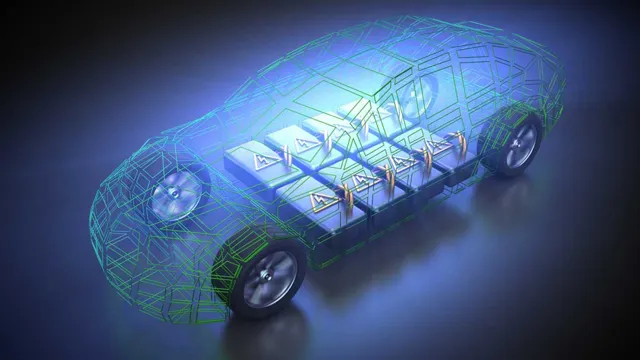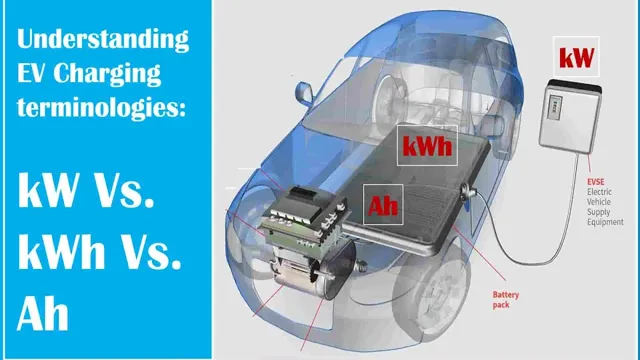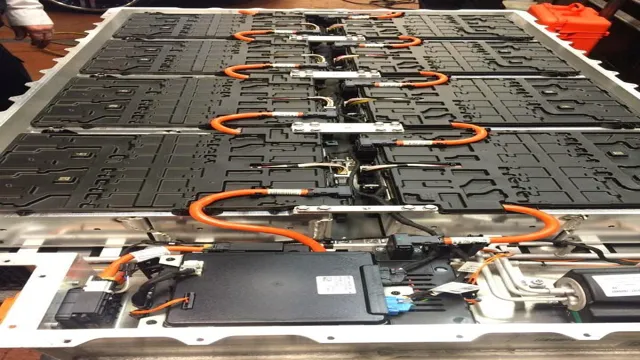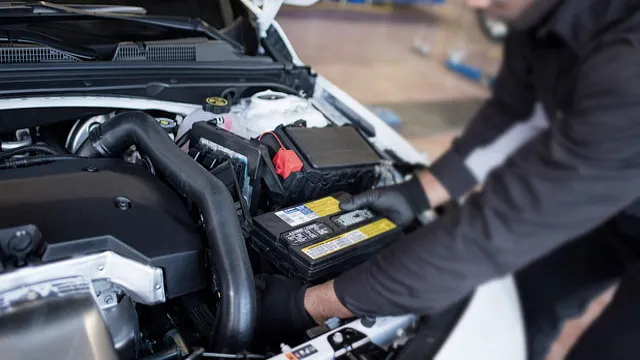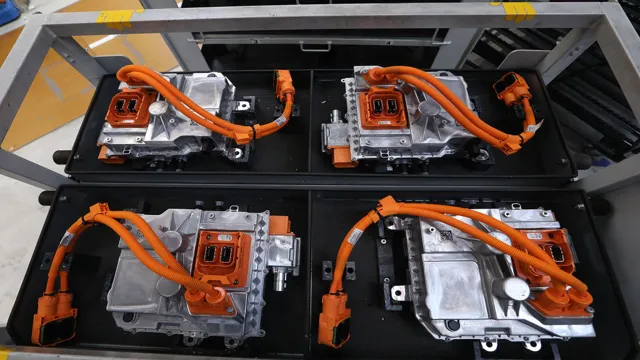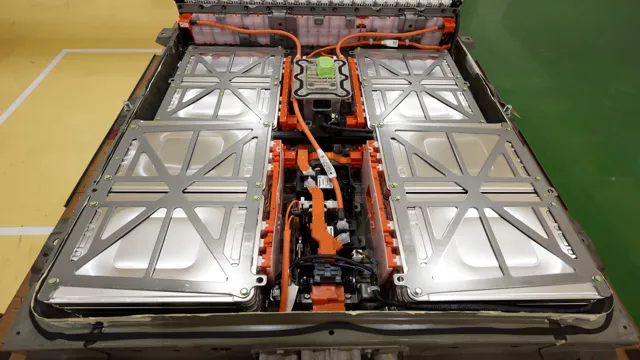The Shocking Truth: Why the Battery for Your Electric Car Is Harming the Environment
Electric cars have been touted as a more environmentally friendly alternative to traditional gas-powered vehicles. But what about their batteries? How do they affect the environment? While electric car batteries offer many benefits, including reduced emissions and lower fuel costs, they also come with their own set of environmental challenges. In this blog post, we’ll explore the impact of electric car batteries on the environment and discuss some of the ways manufacturers and consumers can work together to minimize that impact.
So let’s dive in and explore the world of electric car batteries and the environment!
Environmental Impact of Battery Production
The rising popularity of electric cars has led to concerns about the environmental impact of battery production. Although electric vehicles offer a cleaner and greener alternative to petrol-powered vehicles, the manufacturing process for their batteries requires large amounts of energy and resources, which can contribute to environmental damage. Chemicals and heavy metals used in the production process pose a significant risk to both local and global environments.
These materials are often extracted using energy-intensive methods that generate pollution and lead to habitat destruction. Transporting the materials and completed batteries can also generate greenhouse gas emissions, contributing to climate change. While advancements are being made to improve the sustainability of battery production, it is essential to consider the whole-life environmental impact of electric vehicles and strive for more environmentally friendly production processes.
CO2 Emissions During Manufacturing
Battery production is not without environmental impact, with CO2 emissions being a major concern during the manufacturing process. As batteries contain metals such as nickel, cobalt, and lithium, mining and processing these materials releases significant amounts of CO2 into the atmosphere. In fact, a study by the Swedish Environmental Protection Agency found that the production of a single lithium-ion battery can result in emissions of between 150 and 200kg of CO
Additionally, the energy-intensive process of manufacturing batteries requires large amounts of electricity, which is often sourced from fossil fuel power plants. Nevertheless, battery manufacturers are working to reduce their carbon footprint by adopting more sustainable practices, such as using renewable energy sources and improving the efficiency of their processes. As the demand for batteries continues to grow, it is becoming increasingly important to find ways to produce them in a more environmentally friendly manner.
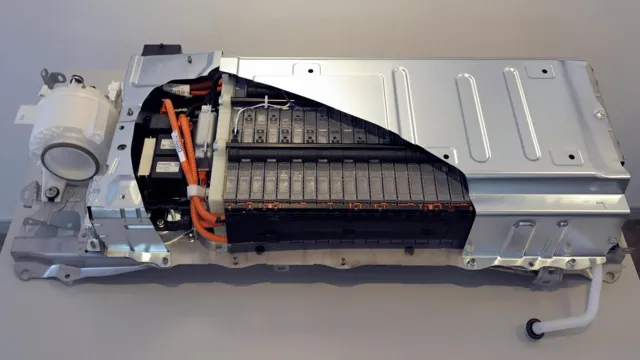
Toxic Materials in Batteries
Battery production has long been associated with the release of toxic materials into the environment. These materials, such as lead, lithium, and cadmium, contribute to soil, water, and air pollution. In addition, the extraction and refinement of these materials require a lot of energy, leading to increased carbon emissions and a negative impact on the environment.
The disposal of batteries also presents a significant environmental issue. Improperly discarded batteries can release hazardous chemicals into the environment and harm wildlife. It is important to properly dispose of batteries and use responsible manufacturing processes to minimize the impact on our planet.
As consumers, we can also make a difference by choosing products that use sustainable materials and have a low carbon footprint. By taking small steps, we can all contribute to a healthier planet and a sustainable future.
Sustainable Battery Production
It’s no secret that the increasing use of electric cars has led to the need for sustainable battery production. While electric vehicles have been touted as a more eco-friendly alternative to traditional gas-guzzling cars, the truth is that the manufacturing process for these batteries can actually hurt the environment. Battery production often involves the extraction of raw materials like lithium and cobalt, which can have significant negative impacts on local ecosystems.
Additionally, the energy required to manufacture batteries can result in high levels of carbon emissions. However, there are efforts being made to develop more sustainable methods of battery production, such as using recycled materials and renewable energy sources. As consumers, we can also make a difference by supporting companies that prioritize sustainable practices in their production processes.
Battery technology is constantly evolving, and as long as we continue to prioritize sustainability, the future of electric vehicles looks bright.
Recycling Batteries
Sustainable Battery Production Sustainable battery production is becoming increasingly important as we strive to lessen our environmental impact. One aspect of this is the recycling of batteries. Batteries contain harmful chemicals like lead, cadmium, and mercury, which can be harmful to both people and the environment if not disposed of properly.
Recycling batteries allows us to extract valuable metals and minerals that can be reused in new batteries, reducing the need for mining and the associated environmental damage. Additionally, it helps us reduce the amount of waste going into landfills and further polluting our planet. By embracing sustainable battery production, we can help protect our environment for future generations.
Alternative Battery Technologies
Sustainable battery production has become a hot topic in recent years as the demand for batteries continues to rise. Alternative battery technologies, such as solid-state batteries and flow batteries, have shown promise in reducing the environmental impact of battery production and disposal. Solid-state batteries, for example, use a solid electrolyte instead of a liquid one, making them safer and more efficient.
Meanwhile, flow batteries use tanks of electrolyte fluids which can be easily refilled, allowing for a longer lifespan and reduced waste. These alternative technologies provide a sustainable solution to the increasing demand for batteries in our technology-driven world. As more companies invest in research and development, we can expect to see more sustainable battery options hit the market in the years to come.
To create an eco-friendly future, these advancements in technology should be embraced and utilized.
Reducing Carbon Footprint Through Energy Production
Battery production has always had a bad rep for being a major contributor to carbon emissions. However, sustainable battery production is now possible and can greatly reduce our carbon footprint. For instance, companies are starting to implement renewable energy sources in their battery production process, such as solar and wind power.
This means that the energy used to create batteries is coming from clean sources, greatly reducing the amount of carbon emissions produced. Additionally, companies are starting to use recycled materials for their batteries, reducing the amount of waste produced and conserving natural resources. Sustainable battery production not only reduces our reliance on fossil fuels but also helps to combat climate change.
By implementing these sustainable practices, battery production can become a vital part of our transition to a greener, more sustainable future.
Lifecycle Assessment of Electric Cars
While it’s true that the battery for electric car hurts the environment, it’s important to look at the bigger picture when assessing the lifecycle of electric cars. The production of electric car batteries requires the mining of rare metals like lithium and cobalt, which has its own environmental impacts. However, the emissions savings from electric cars outweigh the negative impacts of battery production and disposal when compared to traditional gas-powered cars.
According to a study by the Union of Concerned Scientists, even when factoring in the emissions from battery production, electric cars produce fewer emissions over their lifetime than the average gas-powered car. Additionally, advancements in battery recycling technology are helping to reduce the environmental impact of battery disposal. It’s clear that the transition to electric cars will not be perfect, but it is a step in the right direction towards reducing the environmental impact of transportation.
Comparing Emissions with Gasoline Cars
Electric cars have been touted as a cleaner and greener alternative to gasoline-powered vehicles. But to truly understand their impact, it’s necessary to look at a lifecycle assessment, which considers emissions not only from driving but also from manufacturing, maintenance, and end-of-life disposal. Compared to gasoline cars, electric vehicles have been shown to emit fewer greenhouse gases and pollutants, even accounting for their manufacturing process and the energy needed to charge them.
The key factor is the source of the electricity used to charge the EVs. If the electricity comes from renewable sources like wind or solar, the emissions can be drastically reduced. However, if the electricity comes from fossil fuels, the emissions from the car will still be lower than a gasoline car but not as low as they could be.
It’s important to note that electric vehicles are not a one-size-fits-all solution, and their impact on the environment will vary based on factors such as driving habits, the grid in the area where they are driven, and the type of electric vehicle being used. Overall, electric cars have the potential to significantly reduce emissions and contribute to a greener future.
Factoring in Battery Production and Recycling
Electric cars are often touted as a greener alternative to traditional gasoline-powered vehicles. However, when conducting a lifecycle assessment of electric cars, it’s important to factor in battery production and recycling. While electric car batteries do not emit any pollutants during use, the mining and manufacturing of their components can be resource-intensive and leave behind a significant carbon footprint.
On the other hand, batteries can be recycled at the end of their life, minimizing their impact on the environment. It’s crucial to strike a balance between minimizing the emissions associated with battery production and disposal and ensuring that electric cars remain a sustainable option for the future.
Conclusion: Weighing the Pros and Cons
In conclusion, the idea of a battery-powered car may seem like a clean and eco-friendly alternative to fossil fuels, but the reality is that the production and disposal of the batteries used in these vehicles have a significant impact on the environment. From the mining of raw materials to the chemical processes involved in production, and ultimately to the disposal of the highly toxic waste materials, the battery industry leaves a large carbon footprint. So, while electric cars may be better for the air we breathe, it’s important to recognize that they’re not entirely green – they still come with a cost to the planet we call home.
“
FAQs
How does using a battery for an electric car harm the environment?
The production and disposal of batteries in electric cars can release toxic chemicals and heavy metals into the environment, leading to soil and water contamination.
Are there any eco-friendly alternatives to batteries for electric cars?
Some electric car manufacturers are experimenting with using supercapacitors or hydrogen fuel cells as alternatives to batteries, which are more environmentally sustainable.
Can electric car batteries be recycled?
Yes, electric car batteries can be recycled, but the process can be costly and energy-intensive. However, efforts are being made to improve battery recycling technologies.
Do electric cars have a lower carbon footprint than gas-powered cars?
Yes, electric cars have a lower carbon footprint than gas-powered cars, even when taking into account the production and disposal of batteries. This is because electric cars emit no tailpipe emissions.
